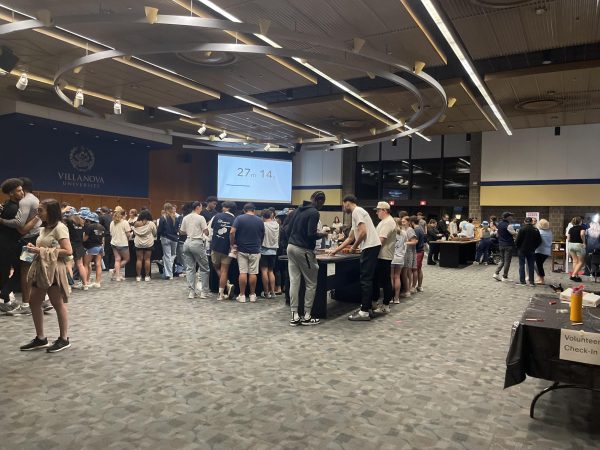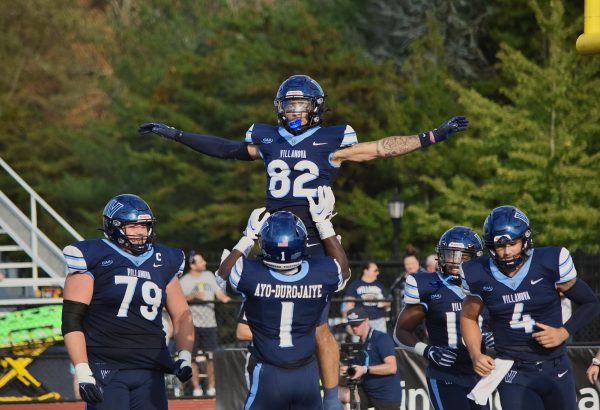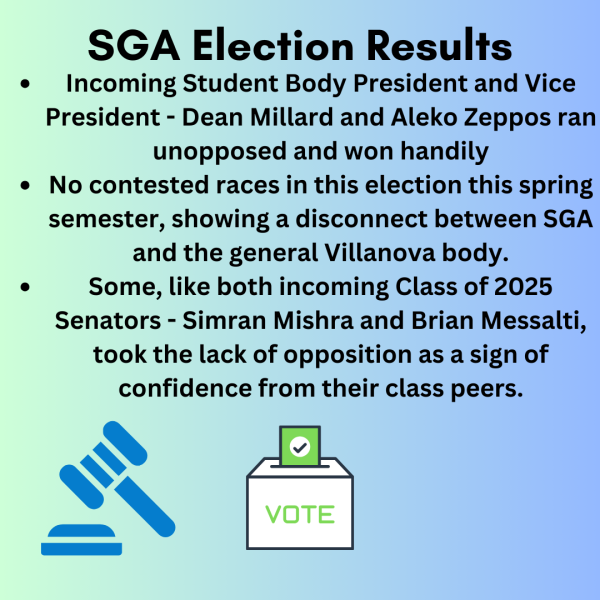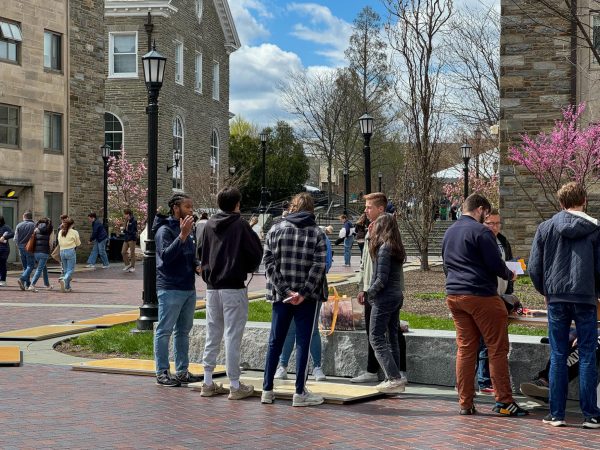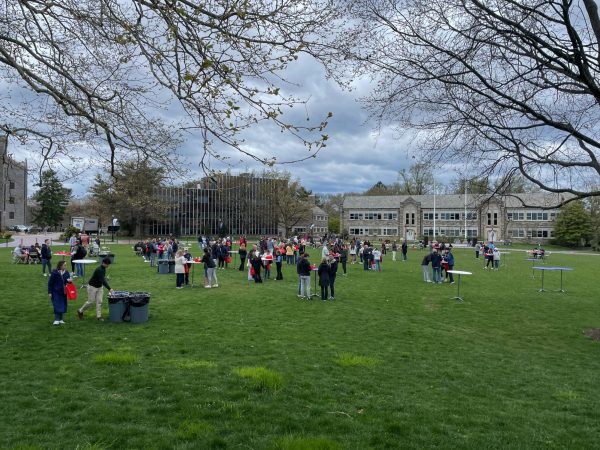Changes to Come in SGA Hoops Lottery
February 13, 2019
It’s “The Finn’” now, no longer just “The Pavilion.” Its interior now glimmers a glossy blue and white far from the dingy concrete only missed by the most die-hard ‘Nova fans. Students surround the court in a Cameron Indoor-esque style student section and cheer under a scoreboard sharper than most TV sets.
Attending games is now a first-class experience. Fewer and fewer students remain who remember when the charm of going to a basketball game included clambering up the rickety South side bleachers while the splintery seats swayed like a musical death trap under the weight of 2,000 rabid fans.
Not only has the student experience at The Pavilion been beautified, but the SGA Hoops Lottery system has also been revamped. No more long lines, wildcard readers or paper tickets. Now, students enter the lottery on the “Nova Students” app and with a quick scan of an e-ticket, they’re in.
Janine Shao, Assistant Athletic Director for Marketing, was part of the implementation of this new student ticketing system.
“It’s so simple going on your phone and having access to everything,” Shao said. “It’s been a great transition overall.”
JJ Brown, Director of Student Involvement, also actively worked with Shao and SGA in implementing the new ticketing process, and initiating the use of “Nova Students” to allows students to register for ticket lotteries and track their points all on the app.
Brown explained Villanova partnered with a company “Fanmaker” in building the app.
“Villanova provides the app with the parameters. Then, [Fanmaker] developed the app,” said Brown.
Shao explained that under the old ticketing system, there was also no way of either tracking attendance at Wells Fargo Center games or monitoring the illegal sales of paper student tickets.
“At least with this [new system], the ticket you are given is tied to your account. If you go to a game, you are awarded,” she said.
This “award” comes in the form of points, which as they accumulate, increase a student’s chances of winning future ticket lotteries.
Shao explained that student tickets are selected through a true lottery system, meaning the number of points a student has equals the number of times his or her name is entered into the random lottery selection.
The more points a student has, the greater her chances of being ticketed.
“We want to award those who come to games,” Jason Ackerman, student liaison between SGA and Athletics, said. “That is why even at the beginning of the year, we have bonus games to provide that incentive. We do want students to support other teams.”
Many students, like sophomore Nick France, are satisfied with the new ticketing system.
“It’s fair,” France said, “getting rewarded if you go to other sports, that makes sense.”
However, not all students are equally pleased with the #1 student ticketing app.
In a survey of 100 students, 56% agreed that the SGA Hoops Lottery System needs “minor improvements,” while 40% said the system needs to be “totally revamped.”
“The app crashes all the time. I can’t tell which [game] I’m actually entering for,” freshman Amelia DeMarco said.
An anonymous surveyed student wrote a similar comment: “The app is very poorly designed and often glitches. It is confusing [to see] which game you are entering.”
Other students, like freshman Jason Mitala, said, “the geo-location sometimes doesn’t work.”
Responding to lottery registration confusion, Shao said, “You just need to read it. It’s pretty clear,” and regarding qualms about geo-ticketing, she responded, “for the men’s basketball games, the geolocation is just a backup. Your points are based on ticket scans. That should be 100% accurate.”
Ackerman also clarified, “a lot of times students aren’t aware you get points simply from your ticket scan. For Wells Fargo games especially, it takes a day or two for the games to come in.”
However, the Athletic Department does admit Villanova’s custom app through Fanmaker is not perfect.
“This is the number one app, not to say that they certainly don’t have things we would update,” Shao said.
In addition to expressing frustration with the ticketing app’s user friendliness, students were disgruntled about the point system itself.
In a survey of 100 students, a 37% majority agreed with the statement, “I have a high point total, and I am infrequently ticketed.”
“Of course, there could be someone who has a small amount of points who does win and vice versa,” Shao said. “As you go along further in the year, it starts to even out a little more.”
“I think [the point system is] fake,” DeMarco said. “Though they base it off the points, for the first four games, I got all four [games]. Some people did not get any, and they definitely had more points than I did. I think it’s a conspiracy theory.”
There is no way of measuring your point total, in relation to other students, which confuses students.
Shao admitted this flaw in the ticketing system, and said, “one of the changes we’d like to make with the app [is] visibility of where you fall [with your] points.”
However, though students complain that they are not being ticketed, according to Shao, 1/5 of ticketed students are “no-shows” at games.



